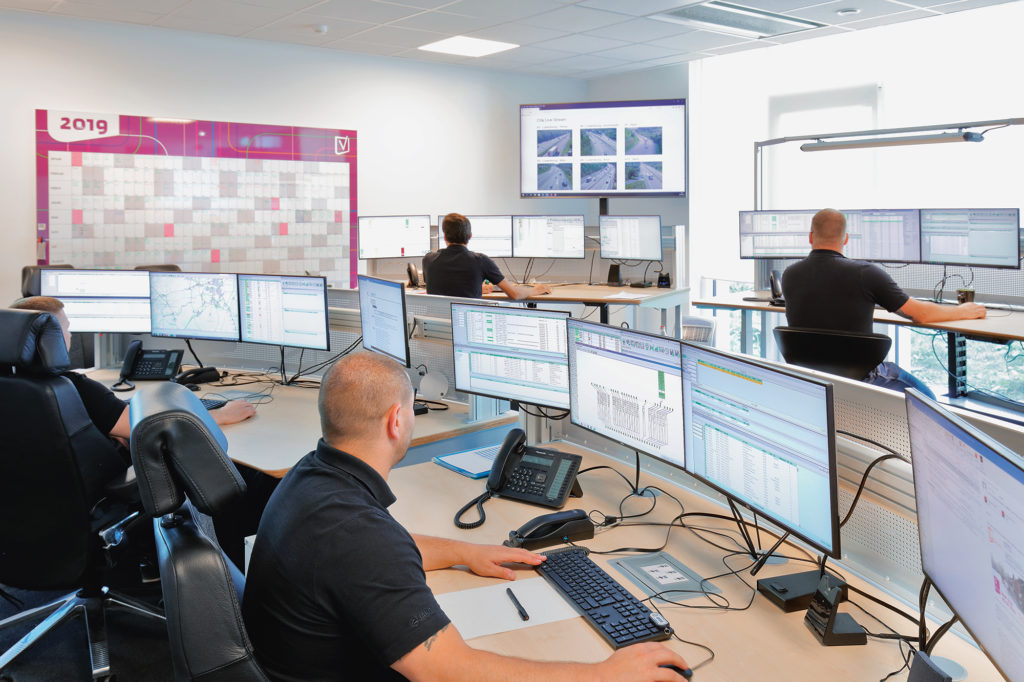ERDF/REACT-EU

The project
The COVID-19 pandemic has strongly affected the European Union in health, social and economic terms. Therefore, a recovery plan of almost 50 billion euros “Next Generation EU”, part of the ERDF (European Regional Development Fund) and REACT-EU (Recovery Assistance for Cohesion and the Territories of Europe) project, was defined by the European Union at the end of 2020 to repair the damage caused by the crisis and to support the recovery in the Member States.
In this framework, the Grand Duchy of Luxembourg benefits from a financial contribution from the ERDF in the framework of the Community programme “Investment for Growth and Employment” 2014-2020, which is intended to “promote the repair of damage following the crisis caused by the COVID-19 pandemic and prepare an ecological, digital and resilient recovery of the economy”.
The ERDF co-financing takes the form of a grant of €35 million to subsidise the electrification of the Régime général des transports routiers (RGTR) bus network. To this end, an agreement was signed between François Bausch, Deputy Prime Minister, Minister for Mobility and Public Works, and Franz Fayot, Minister for the Economy.
Electrification of the RGTR bus network
One of the Government’s priorities is to combat climate change, in particular by reducing CO2 emissions from combustion engine vehicles. Luxembourg’s commitment to this has been given concrete form by the ratification of the Paris Climate Agreement and imposes strict operating conditions. In line with this, the government programme of 3 December 2018 provides for the complete electrification of the RGTR network by 2030: “Pilot projects for electric bus lines will be continued with the aim of achieving zero emissions on the regional bus network of the Régime général des transports routiers (RGTR) in 2030”.
In September 2020, the Department of Mobility and Transport launched a tender for the operation of public road transport services “RGTR”. This contract takes into account these expectations by providing for the electrification of several bus lines either from the beginning or during the execution of the contract in question. This objective is in the spirit of Directive (EU) No 2019/1161 of the European Parliament and of the Council of 20 June 2019 amending Directive 2009/33/EC on the promotion of clean and energy-efficient road transport vehicles, as the State of the Grand Duchy of Luxembourg intends to promote and stimulate the market for clean and energy-efficient vehicles.
In 2021, the RGTR bus network in Luxembourg will have 465 public and school routes, with more than 9,000 daily weekday trips and a total of 81.5 million km travelled. In 2022, the number of passengers increased by 26% compared to 2021.
In 2022, the fleet consisted of 1,396 buses in total, including the reserve, of which 158 were electric buses. This number represents 11% of the RGTR fleet in 2022. By the end of 2023, the number of electric buses will increase to 500 buses, with 23,800,000 kilometres planned. The electrified network will be spread over 77 public bus lines in 2024. This development is closely linked to the subsidy of the electrification of the RGTR network by the ERDF/REACT-EU programme.
The buses put into service and eligible for ERDF co-financing are of 3 types, namely “midibuses” (length 11m), “standard” low-floor buses (14m), and “articulated” low-floor buses (19m).
The “E-BUS RGTR” project was thus selected by the ERDF/REACT-EU to benefit from this co-financing as it fits perfectly into the programme in question. The financial participation started on 17 July 2022 with the entry into force of the new public service contracts for the operation of the RGTR network.





